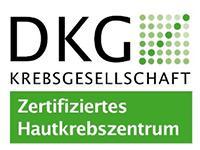Melanoma is a skin tumor, which develops from pigment cells. This refers to aggressive neoplasms. It is a very complex task to cure melanoma after the tumor starts its vertical growth and causes the spread of metastases, but doctors in Germany successfully cope with this task. If you have this disease, you can undergo your treatment in Germany. You are welcome to visit the Booking Health website to see the cost of procedures and choose the best hospitals. Our company's specialists advise you on all issues and help you to organize a trip to Germany. Oncology hospitals in this country successfully treat even advanced stages of cancer.
Content
- Surgical treatment
- Chemotherapy
- Radiation therapy
- Immunotherapy
- Targeted therapy
- Where to undergo treatment?
Surgical treatment
Surgery is the mainstay of early-stage melanoma treatment. Since the tumor is located outside a patient's body and is available for visual detection, cancer is usually diagnosed in a timely manner, at an operable stage. Therefore, for most patients, surgery becomes the first, and sometimes the only, cancer treatment.
The following operations can be performed for the treatment of melanoma:
Wide excision. A doctor removes the tumor with the involvement of the surrounding intact skin. How many centimeters a specialist will involve next to the melanoma depends on two factors: the size of the tumor and the aesthetic and functional significance of the body part. Sometimes doctors reduce the volume of normal tissue removed near the tumor if it is located on the face or in other areas where it is important to resect as economically as possible. But it should be borne in mind that the risk of cancer recurrence increases in such cases, so patients often require additional medical procedures and more accurate monitoring after surgery.
Mohs surgery. This intervention is not used for melanoma as often as for skin cancer. The operation is performed only at an advanced stage, if the neoplasm is located in an aesthetically and functionally significant area. It is more complex and lasts much longer, and the cost of treatment is higher. However, this surgery helps to reduce the volume of healthy tissue removed. The essence of Mohs surgery is that the skin is removed as sparingly as possible. The tissues are then examined to find out where cancer cells are left on the border of the removed tissue. Doctors then continue to cut thin flaps only in the direction where there are signs of cancer. In those directions where resection margins are clean, a wound is not expanded. The operation is carried out in several stages, and it is continued until cancer cells remain in the removed tissues.
Amputation. Doctors may remove a small part of the body, such as a finger or an earlobe, if melanoma is located in that area. This operation is not common.
Lymph node dissection. Most patients with melanoma require this surgical procedure. Doctors remove regional lymph nodes that cancer may have spread to. This stage of the operation is often more complex and traumatic than tumor resection itself, but it helps to reduce the risk of cancer recurrence.
Sentinel lymph node biopsy. This intervention helps many patients to avoid lymph node dissection. This operation not only causes additional trauma to the patient, but also often causes complications, such as lymphoedema. Therefore, doctors in developed countries try not to perform lymph node dissection whenever possible. Instead, a sentinel lymph node biopsy is performed. With its help, doctors can check whether cancer has spread metastases. If they are not present, there is no need for lymph node dissection.
The procedure is performed intraoperatively. Doctors inject a radioactive agent into the tumor area. With a gamma camera, they check in which lymph nodes the radiopharmaceutical accumulates. These 2-3 nodes are removed and examined. If there are no signs of cancer in them, the lymph nodes located farther from the tumor are also not affected, and there is no need to remove them. Should metastases be detected, lymph node dissection will be performed to a standard extent.
Chemotherapy
Doctors use two types of chemotherapy for the treatment of melanoma in Germany:
- systemic chemotherapy is a conventional type of cancer treatment that involves the intravenous administration of drugs;
- isolated chemoperfusion (ILP) or isolated limb infusion (ILI) is a regional chemotherapy that is more effective and does not cause any systemic toxicity.
Doctors in hospitals in Germany very rarely use systemic chemotherapy for melanoma. This is due to its low efficiency. Immunotherapy and targeted therapy work better and are therefore considered a first-line therapy.
Specialized hospitals in Germany use regional chemotherapy. This can be used in patients with an inoperable tumor that is limited to a limb. The essence of this treatment method is that doctors can use high doses of chemotherapy agents, deliver them to one part of the body only, destroying the tumor and avoiding systemic side effects.
Isolated limb chemoperfusion requires a minor surgery. Doctors connect the blood vessels of the arm or leg to a device. The blood from the rest of the body no longer enters here. A large number of chemotherapy agents are injected into the bloodstream of the limb. For some time, they circulate in the blood vessels, destroying cancer cells. Sometimes the solution is heated to increase the effectiveness of cancer treatment. Upon the completion of the procedure, an artery and a vein of the limb are connected back to the bloodstream.
Radiation therapy
Radiation therapy is not used as often for melanoma as it is for most other types of cancer. Only a few patients receive radiation therapy. This can be used in the following cases:
- treatment of melanoma at an early stage in patients with contraindications to surgery;
- postoperative treatment of desmoplastic melanoma, a rare type of cancer;
- adjuvant radiation therapy used for the area of a lymph node basin after lymph node dissection (the procedure is performed to prevent cancer recurrence);
- control of a recurrent tumor;
- local control of distant metastases;
- palliative radiation therapy is provided at an advanced stage of the disease to relieve symptoms, prevent, and treat cancer complications.
Doctors in hospitals in Germany use stereotactic radiation therapy and radiosurgery to suppress melanoma metastases in the brain. In just one or several sessions, the tumor is destroyed by radiation by directing it very precisely, from different angles. Gamma Knife or CyberKnife are often used for radiosurgery. A similar approach is used to suppress metastases in other parts of the body: this type of radiation is called stereotactic body radiation therapy (SBRT).
Immunotherapy
Immunotherapy is more effective for melanoma than most other cancer treatments. Therefore, this is considered the second most important treatment option after surgery. Immunotherapy can be used both for the prevention of recurrences, and as an independent method. Modern methods of immunotherapy can inhibit tumor growth even at the advanced stages of melanoma for years, and sometimes they can cure this disease completely.
Healthcare professionals in hospitals in Germany use the following types of immunotherapy:
A cream with immune response modifiers. This cream can cure the very early stages of melanoma. It can be used instead of surgery to obtain a better aesthetic result, for example, when a tumor is located on the face. The cream is applied to the skin 2 to 5 times a day for up to 3 months.
Immune checkpoint inhibitors. Doctors prescribe PD-1, PD-L1, CTLA-4, and LAG-3 inhibitors for patients with melanoma. Treatment most often begins with PD-1 inhibitors. LAG-3 inhibitors are used along with them to enhance the effect. CTLA-4 inhibitors are prescribed when PD-1 inhibitors are ineffective, and PD-L1 inhibitors are prescribed primarily for patients with BRAF gene mutations.
Interleukin-2. This is a drug that stimulates the immune system. Doctors inject the medication subcutaneously. This treatment has been used less frequently in recent years because immune checkpoint inhibitors are more effective. Interleukin-2 is used in Germany when other immunotherapies no longer work. To achieve a better effect, doctors can increase the dosage of interleukin-2, but, in this case, patients are treated on an inpatient basis. Reducing the number of side effects with a good result of therapy can be achieved by injecting interleukin-2 into the tumor.
BCG. A BCG vaccine is usually used to prevent severe forms of tuberculosis. However, this is also effectively used in oncology, including in the fight against melanoma. Sometimes BCG is injected into the tumor to enhance the immune response. This treatment method is rarely used in Germany, as it has been superseded by other, more modern methods of immunotherapy. Sometimes this can be resorted to at stage 3 melanoma.
Oncolytic viruses. Talimogene laherparepvec (T-VEC) is a virus that can be used to treat skin or lymph node melanoma. This is injected directly into the tumor. The virus not only destroys cancer cells, but also stimulates an immune response, and therefore reduces the size of all tumor foci in the body. Injections are performed every 2 weeks.
Treatment with tumor-infiltrating lymphocytes (TILs). Doctors take immune cells directly from tumor tissue, culture them with interleukin-2, and then test which cell populations are more active in attacking melanoma. The most aggressive cells multiply within a few weeks and are injected into a patient's body. Approximately 50% of those treated respond to treatment, and, in 20% of cases, the tumor disappears along with all metastases.
CAR T-cell therapy. This treatment can be used for the advanced stages of melanoma. Sometimes this therapy allows doctors to cure this disease even in patients with metastatic cancer. Doctors take immune cells from the blood, modify them, multiply, and return them back to the body. These cells attack the tumor and destroy it. The treatment method is very effective, but the price for this procedure in Germany is hundreds of thousands of dollars.
Targeted therapy
With BRAF and C-KIT gene mutations, patients can undergo targeted therapy. Molecular genetic tests are required to understand whether such a cancer treatment is suitable for a person.
BRAF inhibitors, MEK inhibitors, or a combination of these two drugs are prescribed to patients for the treatment of melanoma in Germany. In combination, these medications work better, reducing tumor size and increasing life expectancy for patients.
Tyrosine kinase inhibitors are used much less frequently for cancer treatment. They are effective in the case of C-KIT gene mutations, which are rare. Such melanoma is most often localized on the soles, palms, under the nails, on the mucous membranes, or on the areas of the body that are subject to constant insolation.
Where to undergo treatment?
You can undergo your treatment of melanoma in Germany. There are a few reasons for you to use the services of doctors from German hospitals:
- melanoma is cured completely in most patients;
- early-stage melanoma can be treated with Mohs surgery;
- doctors offer the latest treatments, including modern types of immunotherapy, and isolated limb chemoperfusion;
- treatment of melanoma in Germany involves the use of modern methods of radiation therapy, which minimally irradiate healthy tissues, but provide a high radiation load on the tumor;
- doctors in hospitals in Germany can control the disease for many years, even at its advanced stages, and, in some patients, it is possible to cure it completely.
You are welcome to use the Booking Health service to find the cost of treatment in Germany, compare prices in different hospitals, and make your treatment appointment at a favorable price. The Booking Health specialists will help you to select the best hospitals and arrange your trip. When making your treatment appointment through our service, the cost of treatment in Germany will be lower for you due to the lack of additional fees for foreign patients. The initial price will not increase, as you will receive insurance that will cover all extra medical expenses.
Authors:
The article was edited by medical experts, board certified doctors Dr. Nadezhda Ivanisova and Dr. Sergey Pashchenko. For the treatment of the conditions referred to in the article, you must consult a doctor; the information in the article is not intended for self-medication!
Sources:
National Cancer Institute
Cancer Research Institute
MedicineNet



















